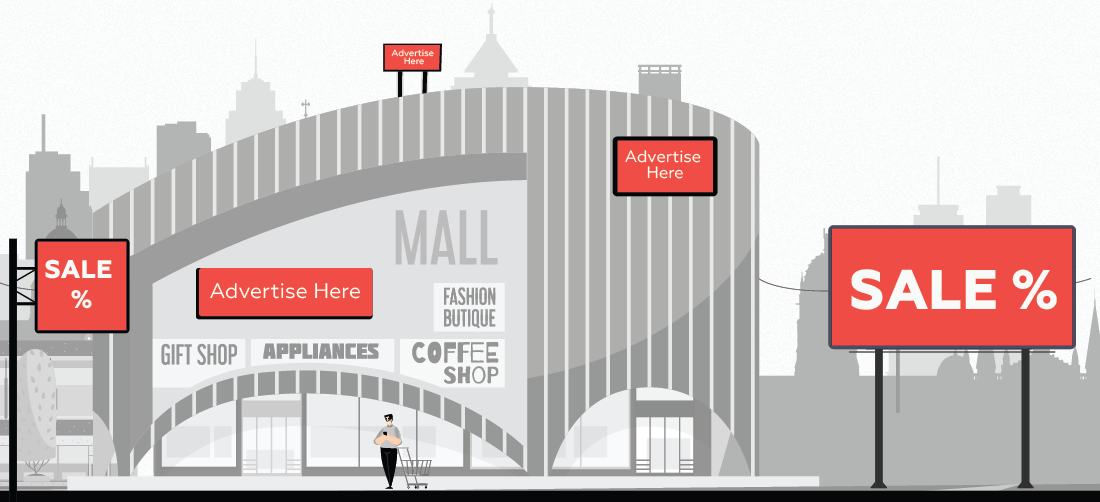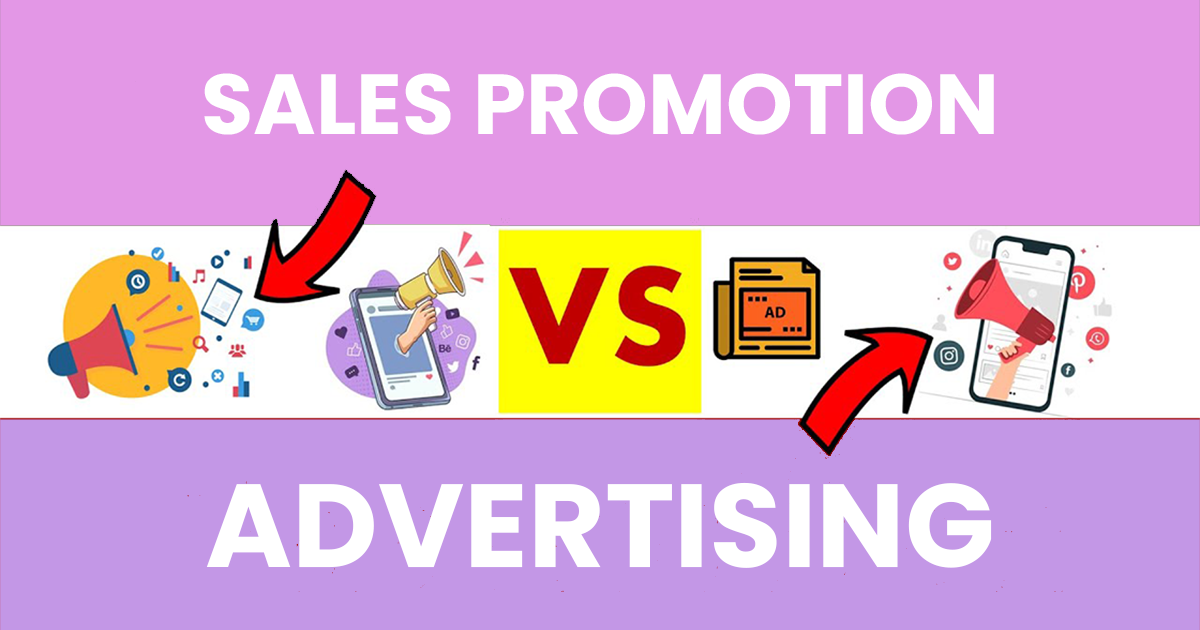
You’ve got a business to grow and a market full of people to impress. Every day, you're making decisions about where to put your money. Should you focus on building your name? Or should you push for more sales right now?
Introduction
Advertising and sales promotion are two marketing tools that can change how your business performs. Each works differently. One helps people remember you. The other gives them a reason to buy today. But when should you use which? And can they work together?
This guide breaks it all down in simple terms. Whether you're a local shop or a growing brand, you’ll see how these tools work and how to use them smartly. You’ll also learn to differentiate between advertising and sales promotion and use each at the right time.
What is Advertising?
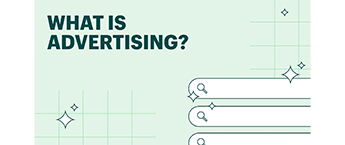
Advertising is how your business stays visible. It helps your name reach more people and makes sure they recognize you when it matters.
It is not just about pushing a product. Advertising and sales promotion both aim to increase customer engagement, but advertising is about showing people what your brand stands for. You are telling your story, building trust, and creating a connection over time.
Businesses advertise through print ads, television ads, social media, radio, or digital platforms. These ads are usually aimed at a large audience and are designed to keep your brand fresh in their minds. The focus is not on immediate sales. It is about building a reputation and staying relevant.
What is a Sales Promotion?

Sales promotion is a short-term approach. It is about getting quick results. When you want to increase sales fast or attract new buyers, this is the strategy to use.
These promotions can come in many forms—discounts, coupons, giveaways, contests, or limited-time offers. They are used to create excitement and give customers a reason to buy now.
Sales promotions are especially useful for clearing out inventory, launching a new product, or creating buzz around your business.
When you think about the difference between advertising and sales promotion, this is it—one builds image, and the other drives action.
Core Features of Advertising vs. Sales Promotion
Advertising Features
Long Term Brand Awareness
Good advertising keeps your name in people’s minds even when they are not shopping. It helps your brand become familiar and trusted over time.
Non Personal Mass Communication
Advertising reaches a wide audience at once. It is not targeted at individuals but is designed to create a broad impression.
High Investment, Slow ROI
Advertising often costs more and takes longer to show results. But the returns can be strong if your brand becomes well known.
Sales Promotion Features
Immediate Sales Boost
Sales promotions lead to a fast increase in purchases. They are great when you need quick results.
Direct Incentives for Consumers
These promotions give people something extra—a deal, a free item, or a reward. This motivates them to act right away.
Short Term Strategy for Quick Results
Promotions work best over a short period. They create urgency and encourage people to make fast decisions.
To fully understand advertising vs sales promotion, you need to look at how these core features shape their impact.
Difference Between - Advertising vs. Sales Promotion
| Basis | Advertising | Sales Promotion |
|---|---|---|
| Goals and Objectives | Build brand awareness and image | Drive sales and attract attention quickly |
| Duration | Long term, ongoing | Short term, time limited |
| Communication Methods | Mass media, brand messaging | Direct offers, price based incentives |
| Budget Allocation and Costs | Higher investment over time | Lower, more frequent spending |
| Effect on Consumer Behavior | Builds trust and recognition | Encourages impulse decisions |
Differences in Goals and Objectives
Advertising focuses on creating a strong brand image. Promotions aim to increase sales right now. This is one of the most essential ways to see the difference between advertising and sales promotion in practice.
Difference in duration
Advertising has a long-term effect. Promotions are short-term and deliver fast outcomes. This reflects the core split in the advertising vs sales promotion strategy model.
Differences in Communication Methods
Advertising uses broad messages. Promotions are more direct and come with specific offers. You can differentiate between advertising and sales promotion by the kind of messages they use.
Difference in Budget Allocation and Costs
Advertising usually needs a bigger budget upfront. Promotions can be run with smaller, repeatable investments. Both require planning, but the cost structure is part of the difference between advertising and sales promotion decisions.
Difference in Effect on Consumer Behavior
Advertising influences how people feel about your brand. Promotions affect buying decisions quickly.
When Should a Business Use Advertising vs. Sales Promotion?
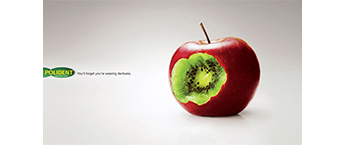
Best Scenarios for Advertising
Use advertising when:
- You want to build your brand’s reputation
- You are launching a new product or entering a new market
- You want to stand out in a competitive space
- You are selling a product that needs trust or explanation
Advertising works best when your goal is to stay relevant and build long-term relationships.
Best Scenarios for Sales Promotion
Use sales promotion when:
- You want to increase sales during a slow period
- You are introducing a new offer or product
- Do you want to clear stock or manage seasonal inventory
- You need to attract new customers quickly
Sales promotions are perfect when you need immediate attention and results.
Situations Where Both Should Be Used Together
You can often get the best results by combining both strategies.
- Run an awareness campaign about your brand, followed by a first purchase offer
- Advertise a new product, then add a discount for early buyers
- Build brand trust over time, and use promotions to convert interest into action
When used together, advertising and sales promotion can work in harmony—advertising creates demand, and sales promotions help close the deal.
How Advertising and Sales Promotion Work Together

Creating a Balanced Marketing Mix
You do not have to pick one over the other. A smart marketing strategy finds the right mix of both. Use advertising to shape perception. Use promotions to move products.
Combining Brand Awareness with Sales Boosts
Advertising helps people understand your values. Promotions give them a reason to try your product now.
Using Promotions to Support Advertising Campaigns
If you launch a big campaign to build awareness, support it with a reward for action. That way, people who hear your message can act on it right away.
Examples of Successful Advertising and Sales Promotion Strategies
Iconic Advertising Campaigns
Example 1: Nike “Just Do It”

Nike used strong messaging to create a global identity. It was not focused on discounts. It was about connection and values. The brand became part of people’s lives.
Example 2: Coca-Cola “Share a Coke”
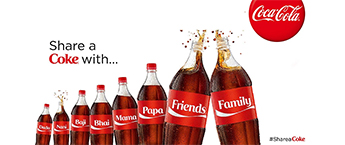
Coca-Cola created a personal experience by printing names on bottles. It drove interaction and sharing, while still promoting the product widely.
Effective Sales Promotion Techniques
Limited-Time Discounts and Flash Sales
Retailers often offer limited-period deals to create urgency. It is common during major shopping events like end-of-season sales or festive periods.
Loyalty Programs and Reward-Based Promotions
Businesses like supermarkets and beauty brands use points and rewards to bring customers back. These programs increase repeat purchases without lowering the product value.
Benefits and Limitations of Advertising and Sales Promotion
Advantages of Advertising
- Creates a lasting impression of your brand
- Helps build customer trust over time
- Allows premium pricing through brand value
- Reaches a large number of people
Advantages of Sales Promotion
- Quick increase in sales volume
- Easy to track and measure
- Great for attracting new customers
- Encourages trial of new products
Disadvantages of Advertising
- Higher upfront cost
- Results take time to appear
- Difficult to measure direct impact on sales
- May not be suitable for short-term needs
Disadvantages of Sales Promotion
- This can lead to lower profit margins
- Too many promotions may hurt brand value
- Customers may wait for discounts instead of buying at full price
- Effects are often short-lived
Conclusion – Choosing the Right Strategy for Your Business
Every business is different. If you’re building long-term trust, go with advertising. If you need quick sales, use promotions. But honestly? The magic happens when you use both.
With the right mix of advertising and sales promotion, you stay in people’s minds and give them reasons to buy now.
At Excellent Publicity, a results-driven advertising agency, we help businesses like yours do just that. We don’t just run campaigns—we plan strategies that match your goals and budget. Whether you want to build your brand, push sales, or do both, we’ve got the tools and experience to make it happen.Do you have questions or want to get started? Reach out to Excellent Publicity today!
FAQs
Sales promotions usually work better for B2C. Consumers respond fast to discounts or limited-time deals. In B2B, buying decisions take longer and depend more on trust, relationships, and product quality than short-term offers.
Many businesses forget who they’re talking to. They run ads without knowing their audience or push promotions too often. Others skip tracking results or confuse offers with real value. That leads to wasted money and low returns.
Advertising builds loyalty by shaping how people see your brand over time. Promotions may bring quick wins but often attract deal-hunters. Too many offers can make people wait for discounts instead of sticking around because they like your brand.
Use promotions when you need fast results—like clearing stock, launching a new product, or getting people to try something. Advertising is better for long-term growth, building a brand, and staying top of mind.
If overused, yes. Constant discounts can make your brand look cheap or unreliable. Customers may stop buying at full price. Used wisely, though, promotions can boost sales without damaging your brand’s image. Balance is key.


